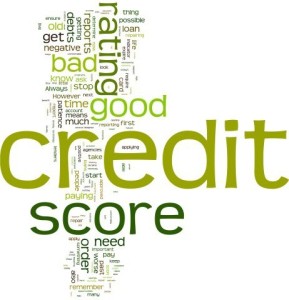
Divorcing Your Mortgage Newsletter December 2017
Divorce Resource you need to protect yourself. A professional divorce team has a range of team players including the attorney, financial planner, accountant, appraiser, mediator and yes, a divorce lending professional. Every team member has a significant role ensuring the divorcing client is set to succeed post decree. A lending professional well versed in the subtle nuances of divorce lending brings the financial knowledge and expertise of a solid understanding of the connection between Divorce and Family Law, IRS tax rules and mortgage financing strategies as they all relate to real estate and divorce.
Richard Woodward is a Dallas Texas mortgage banker and lender that specializes in helping home owners settle those mortgage issues. His goal is to help you with the task of satisfying the divorce decree as well as providing you with what you need and want.
Divorce and Mortgages: What You Need to Know
Divorce and Credit Card Debt
Learn what happens to the liability for credit card debt in divorcing situations.
In a divorce, the extent of a party’s liability for credit card debt depends on:
- whether they live in a common law or community property
- whether the debt is for a joint credit card, and who the debt is assigned to in the divorce.
- who the debt is assigned to in the divorce.
Credit card liability in common law states
The majority of states follow the common law rules when dividing property and debt in a divorce. These are referred to as common law states. In a common law state, you are generally liable for all debts in your name. This means that if you took out a credit card in your name or if you cosigned on it, then the creditor can come after you to collect the debt. As a result, after divorce, you can be held liable for all individual or joint credit cards as long as your name is on them. However, in most cases, you are not liable for any credit card debt owed solely by your spouse.
Special Rules for Community Property States
When it comes to property distribution and debt allocation, certain states follow com- munity property laws rather than the common law. In a community property state, most debts incurred by either spouse during the marriage (but not before or after marriage) are considered community debts. Both spouses are held equally liable for community debts even if only one spouse incurred the debt.
This means that, if living in a community property state, one may be on the hook for a credit card even if it is in the other spouse’s name only. However, each state also considers different factors when determining if an obligation is a community debt. Generally, if the credit card was used for something that benefited the marital community, it will be community debt regardless of who incurred the charges. But if one spouse used his or her own credit card to buy something that did not benefit the marriage, there is a greater chance it will not be considered a community debt.
Currently, community property states include Arizona, California, Idaho, Louisiana, Nevada, New Mexico, Texas, Washington, and Wisconsin. In Alaska, married couples have the option to make their property community property by agreement.
What Happens If the Debt Was Assigned to a Specific Spouse in the Divorce?
The first thing to note is that credit card companies are not bound by the terms of the divorce decree or a family court order assigning the debt to a specific spouse. This is because when the credit card was obtained, either one party or both entered into a contract with the credit card company. A family court judge does not have the power to alter the credit card company’s rights under the contract.
As a result, even if a debt was assigned to one spouse in the divorce, the other spouse will still be liable for it if their name was on the account, were a cosigner, or it was a community debt (although it is less likely that a credit card company will pursue an assigned party based solely on community debt liability if it was the other spouse’s card).
However, if one spouse is ordered to pay a credit card in the divorce but fails to do so, he or she will be in violation of the divorce decree or court order. In that case, the other spouse will usually be entitled to reimbursement or damages from the ex-spouse if the other party ends up having to pay the debt.
What If a Spouse Files for Bankruptcy after Divorce?
If one spouse files for bankruptcy after divorce, his or her liability to the credit card company will be discharged. This means that if both spouses were jointly liable on a credit card, the spouse who did not file bankruptcy is now the only one on the hook.
However, if a debt was assigned to one spouse in the divorce and he or she agreed to (or was ordered to) hold the other harmless for that debt, his or her liability towards that spouse is not discharged in bankruptcy. As a result, if one spouse doesn’t pay the debt and the suffer damages, there may be grounds to sue him or her even if the credit card company can’t.
 Credit Score & Credit Reports
Credit Score & Credit Reports
by Evan Hendrick
This book allows consumers to understand how these systems actually work, and what they can do to improve their FICO scores. The FICO score if often the major factor in determining how much consumers pay for mortgages, refinancing, auto loans and credit cards, as well as for auto or homeowners insurance. It details the ongoing problems with credit repair clients and the impact of identify theft.
Order online at www.creditsocresandcreditreports.com
FREE Credit Reports
Many times, divorcing clients will provide their attorneys with a list of their existing debt; however, the safest way to make sure no debt is over-looked, it is advisable to obtain independent credit reports for both divorcing parties.
In 2003, Congress passed the Fair and Accurate Credit Transaction Act as a way to address identity theft. FACTA is an addendum to the Fair Credit Report Act. Under the FACTA, consumers have the right to request one free copy of their credit report from all three bureaus: Experian, Equifax and Transunion. Congress also created a web side where consumers can order all three reports in one place: www.annualcreditreport.com You can also get 2 of your 3 reports free and monitor it monthly at www.creditKarma.com
Divorce and The Credit Report
 Many divorced couples run into financial problems a few months after a divorce when an ex-spouse starts making late payments on a shared account. These late payments appear on both of the account holders’ credit reports, despite divorce decrees. Once the records appear on your credit report, it will show a negative status for those accounts that were not paid on time or simply, not paid at all.
Many divorced couples run into financial problems a few months after a divorce when an ex-spouse starts making late payments on a shared account. These late payments appear on both of the account holders’ credit reports, despite divorce decrees. Once the records appear on your credit report, it will show a negative status for those accounts that were not paid on time or simply, not paid at all.
In order to avoid these issues, divorced couples should close or refinance all shared accounts if at all possible. Any shared credit cards, loans and mortgages will continue to be a joint responsibility until you work directly with the financial institution to resolve the issue.
Not only can divorce lead to emotional strain, it can also cause all sorts of financial problems. All those shared accounts and co-signed loans that once seemed so romantic are now the cause of major issue. The following important tips can help avoid financial damages that will show up on your credit report and stay on your report there for years to come.
Managing Shared Account s—It is not always possible to close or refinance all your shared debts after a divorce. Mortgages and large loans can be difficult to refinance quickly. In this situation, it is important that you and your ex work together closely to manage a shared account. Remember, your credit will be damaged if your ex cannot manage the shared account responsibly, and vice versa.
One of the easiest ways to manage a shared debt with an ex is by setting up an online account. This way, you can both easily login to check on the payment status of the loan. If you see that the debt has not yet been paid for the month, you can contact your ex or decide to pay the bill yourself in order to avoid a late payment and damage to your credit score. Encourage your ex to sign up for automatic payments that will deduct the bill from his or her accounts each month.
An ex with bad credit may decide to ruin his or her former spouse’s credit by not paying a shared account. Keep in mind that negative reporting, such as charge-offs, liens, judgments, bankruptcy filings, foreclosures and repossessions related to shared accounts can also appear on both account holders’ credit reports. It is advisable to continue working with your ex to manage your shared finances after a divorce when at all possible.
Recently divorced borrowers can build their independent credit history by opening up new credit card account. In order to do this you have to have your credit report in good shape and some decent credit scores. Using a credit account responsibly each month has a positive impact on your credit scores and will give you a few extra points towards your scores each month.
Protecting Your Identity—It is a sad truth, but many couples go through messy divorces that leave both par- ties as bitter enemies in the end. When this is the case, it is important to consider the potential damage that a disgruntled spouse could do to your credit. Armed with your Social Security number, birth date, and other financial de- tails, an ex could potentially steal your identity and cause significant damage to your credit.
After a contentious divorce, you should take a few steps to guard against any possible identity theft crimes before anything can happen. Sign up for credit monitoring that immediately alerts you to changes in your credit data. Be on the lookout for suspicious mail and signs that new accounts have been opened in your name. Change your online banking passwords and request that your account numbers are changed. If you suspect identity theft, contact the credit bureaus immediately and place a 90-day fraud alert on your credit reports.
Most importantly, simply be aware of the possible risk for identity theft. According to a 2013 identity theft survey by the Better Business Bureau, 50% of identity thieves turned out to be relatives, close friends, and neighbors of the victim. Denying that an ex-spouse could steal your identity may cause you to miss important early signs of fraud.

Richard Woodward
Specialty Lending Manager
Service First Mortgage
6800 Weiskopf Ave., Ste. 200 McKinney, TX 75070
Direct: 214.945.1066
mortgageprosus.com NMLS ID 217454 CORP NMLS ID 166487
Why You Need A Certified Divorce Lending Professional on Your Professional Divorce Team.

Richard Woodward is a Certified Divorce Lending Professional
A professional divorce team has a range of team players including the attorney, financial planner, accountant, appraiser, mediator and yes, a divorce lending professional. Every team member has a significant role ensuring the divorcing client is set to succeed post decree.
A Certified Divorce Lending Professional brings the financial knowledge and expertise of a solid understanding of the connection between Divorce and Family Law, IRS Tax Rules and mortgage financing strategies as they all relate to real estate and divorce. Having a CDLP® on your professional divorce team can provide you the benefit of:
- A CDLP® is trained to recognize potential legal and tax implications with regards to mortgage financing in divorce
- A CDLP® is skilled in specific mortgage guidelines as they pertain to divorcing clients.
- A CDLP® is able to identify potential concerns with support/maintenance structures that may conflict with mortgage financing
- A CDLP® is able to recommend financing strategies helping divorcing clients identify mortgage financing opportunities for retaining the marital home while helping to ensure the ability to achieve future financing for the departing
- A CDLP® is qualified to work with divorce professionals in a collaborative
- A CDLP® can provide opportunities in restructuring a real estate portfolio to increase available cash flow when
- A CDLP® maintains a commitment to remaining educated and up to date in the ever changing industry guidelines and tax rules as they pertain to divorce
- A CDLP® is committed to providing a higher level of service to you and your divorcing
The role of the CDLP is to help not only the divorcing client but the attorney and financial planner understand the opportunities available as well as the challenges divorce can bring to mortgage
financing during and after the divorce. When the CDLP is involved during the divorce process and not after the fact, many potential financing struggles can be avoided with valuable and educated input from the Certified Divorce Lending Professional.
“Nothing matters more in winning than getting the right people on the field. All the clever strategies and advanced technologies in the world are nowhere near as effective without great people to put them to work.” – Jack Welch, Winning
This is for informational purposes only and not for the purpose of providing legal or tax advice. You should contact an attorney or tax professional to obtain legal and tax advice. Interest rates and fees are estimates provided for informational purposes only, and are subject to market changes. This is not a commitment to lend. Rates change daily – call for current quotations.
Copyright 2017 All Rights Divorce Lending Association, LLC 
The information contained in this newsletter has been prepared by, or purchased from, an independent third party and is distributed for consumer education purposes.















